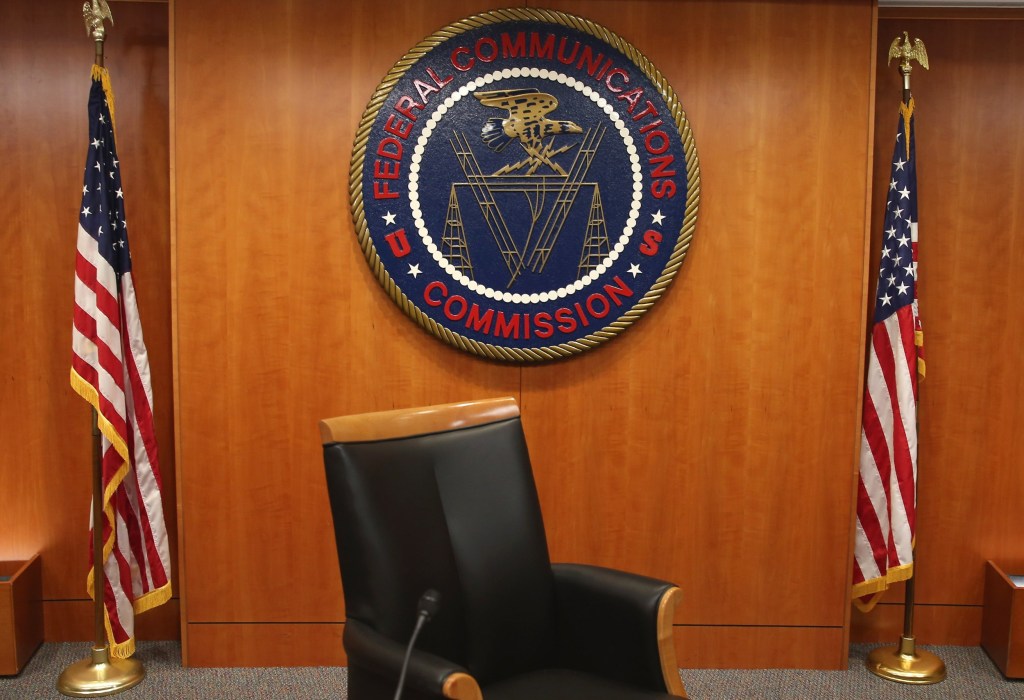It was a productive meeting at the FCC: Chairman Pai talked about putting pressure on phone scammers, preventing phone smuggling in prisons and improving mobile service. But one thing he didn’t want to talk about was the vote taking place in the Senate that very moment that would overturn privacy rules bigger and more important than anything on the agenda.
First, the commission announced that it would be considering a proposed rule and inquiry into using technical means to prevent robocalls. Certain methods of spoofing phone numbers make it so they only connect one way, which makes spamming people a risk-free proposition. The FCC has already looked into banning this and is taking steps to move forward.
That’s great, of course, but if you don’t like unsolicited advertising, you probably also don’t like the prospect of ISPs building a profile of your household or even members of it by monitoring your search history. That’s what they were voting on down the block.
Next up was the growing problem of contraband phones at jails and prisons. Systems are being put in place that block the transmissions of these devices, but they require FCC approval. That’s probably a good thing, but we also have to make sure inmates are provided with adequate and affordable communications options, as they are often at the mercy of unscrupulous private services.
ISPs would be aware that you have a friend or family member in jail, of course, if you created an account at one of the services that provides phone cards and connectivity to correctional facilities. The privacy rules the Senate voted to repeal would have required ISPs to ask before collecting that data.
The FCC next announced some improvements to the indispensable video relay services, which connect people with vision and hearing disabilities to interpreters so they can make calls to people and companies that may not be so accommodating. Improvements include finding interpreters with relevant technical, medical or legal knowledge, improving comparisons between services and providing numbers for direct video calls to ASL interpreters.
Services like VRS are the ones that quietly help lots of people and which those of us fortunate enough to have no disabilities probably don’t even know are out there. I’ll freely admit I had no idea about this one until now, and as soon as I read about it, it struck me as an obvious and critical thing to offer. Protections like those in the privacy rule are also low-visibility, and unless someone were to bring the problems prevented to your attention, you might not know that they existed at all.
Improvements were proposed to the requirements and regulations surrounding the 800 Mhz band, in use for a long time now and seemingly in need of an update. Relaxing unnecessary restrictions from years back and bringing others up to date will allow band 10, as it’s called, to be used more effectively in the modern mobile marketplace.
It’s funny that here old regulations are being given a new coat of paint, while in the Senate a similar, but far more important, coat was in the process of being stripped. The previous rules defining personal data and reasonable measures surrounding breaches are years old and no longer reflect the reality of the modern internet, mobile and otherwise. The privacy rules passed last year brought things up to speed, making things that long should have been considered personal data (most importantly, browsing history) under the umbrella and providing the relevant protections. We aren’t going to be left completely out in the cold (the old rules and the FTC provide some protection) but you better believe ISPs are going to exploit the gap.
A couple other items of a more technical nature were on the FCC’s agenda, as well. But nowhere on the docket was any mention of the resolution that would roll back one of the most important and far-reaching rules the agency set in recent years.
It’s not all that strange — the FCC operates at the pleasure of Congress and is bound by the laws delineating what it can and can’t do. The agency declined to comment on the legislation last week (although Commissioner Mignon Clyburn had something to say today). But it seems a bit disingenuous to talk loudly about extending protections for consumers while at the same time remaining silent about other, very important protections being dismantled.
The repeal of the privacy rules passed the Senate 50-48 along party lines, but the house may prove to be a more dangerous gauntlet for the resolution. This is an issue on which representatives, regardless of party, may choose to take the side of their constituents rather than that of ISPs, which no one seems to deny are the only gainers in this action.
If representatives feel the FCC has overreached, there are ways to rein it in that aren’t to the severe detriment of consumers, and that discussion is worth having. An abundance of caution is enough to question the wisdom of such a unilateral repudiation of a complex and carefully considered rule.
Crossing the aisle may trouble them in the short term, but the choice to err on the side of caution regarding such a forceful and precipitate piece of legislation is one voters will understand. They prefer not being sold to the highest bidder.































Comment